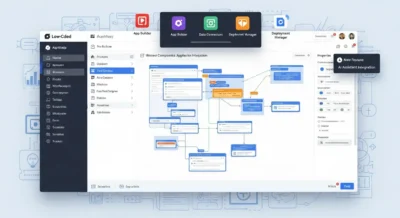Nowadays, customer expectations are higher than ever, and businesses need robust sales management systems to drive growth and foster lasting customer relationships. This article will explore the key features and benefits of Salesforce Sales Cloud, discussing how it revolutionizes sales management and transforms customer relationships.
Understanding Salesforce Sales Cloud
Salesforce Sales Cloud has emerged as a leading solution, equipping organizations with a comprehensive suite of tools and capabilities to streamline sales processes, enhance productivity, and deliver exceptional customer experiences. Salesforce Sales Cloud provides a centralized platform that empowers sales teams to manage their leads, opportunities, and accounts efficiently.
Its intuitive interface and customizable dashboards offer a holistic sales pipeline view, enabling teams to prioritize activities and track progress effectively. Sales representatives can automate repetitive tasks, such as lead assignment and opportunity tracking, allowing them to focus on building relationships and better deals. This streamlined approach to sales management enhances productivity and ensures a consistent and organized sales process.
Recommendations and Ratings
EXPERT RECOMMENDATIONS
Overall
-
Easy-of-Use - 80
-
Feature and Functionality - 85
-
Customer Support - 80
-
Setup and Integration - 75
-
Value of Money - 80
User Review
3.5 (2 votes)Intelligent Insights and Analytics
One of the standout features of Salesforce Sales Cloud is its ability to deliver actionable insights through advanced analytics and AI-driven capabilities. Sales representatives can leverage these insights to identify trends, understand customer behavior, and personalize their sales approach. Salesforce Einstein, the AI engine behind Sales Cloud, utilizes data from multiple sources to generate predictions and recommendations, enabling sales teams to prioritize efforts, improve forecasting accuracy, and drive revenue growth. By harnessing the power of data, Sales Cloud empowers organizations to make informed decisions and optimize their sales strategies.
Enhanced Sales Collaboration
Salesforce Sales Cloud fosters seamless collaboration among sales teams, breaking down silos and promoting knowledge sharing. The platform’s Chatter feature is a social collaboration tool, enabling team members to communicate, share insights, and collaborate on deals in real-time. It encourages teamwork and facilitates collective problem-solving, ultimately improving sales outcomes. Sales representatives can tap into the expertise of their colleagues, gain valuable insights, and collaborate effectively, enhancing overall team performance.
Personalized Customer Experiences
Salesforce Sales Cloud enables organizations to deliver personalized experiences throughout the customer journey. By capturing and centralizing customer data, Sales Cloud provides a 360-degree view of customers, empowering sales representatives with the information they need to tailor their interactions. This deep understanding allows for more meaningful conversations, targeted recommendations, and proactive engagement. With Sales Cloud, organizations can build stronger customer relationships, foster loyalty, and differentiate themselves in a competitive market.
Effective Sales Performance Management
Salesforce Sales Cloud equips sales managers with powerful tools to monitor and optimize team performance. The platform offers comprehensive reporting and analytics capabilities, giving managers real-time visibility into sales activities, key performance metrics, and pipeline health. With these insights, managers can identify top performers, address performance gaps, and provide targeted coaching and training. Additionally, Sales Cloud’s gamification features introduce an element of competition, motivating sales representatives to strive for excellence and achieve their full potential.
Seamless Integration and Scalability
Salesforce Sales Cloud’s integration capabilities enable organizations to connect with other essential business systems, ensuring a seamless flow of information across departments. Integration with marketing automation platforms, customer service software, and ERP systems allows for a unified customer view, facilitating coordinated efforts between sales, marketing, and service teams. Furthermore, Sales Cloud’s flexible architecture enables customization to fit unique business processes, ensuring scalability and adaptability as organizations grow and evolve.
Conclusion
Salesforce Sales Cloud has revolutionized sales management by providing organizations with a powerful platform to streamline sales processes, drive productivity, and foster exceptional customer relationships. With its comprehensive features, including intelligent insights, collaboration tools, and personalized experiences, Sales Cloud empowers sales teams to optimize performance and exceed customer expectations. By embracing Salesforce Sales Cloud, organizations can unlock the full potential of their sales operations, stay ahead in a competitive marketplace, and build long-term success.













